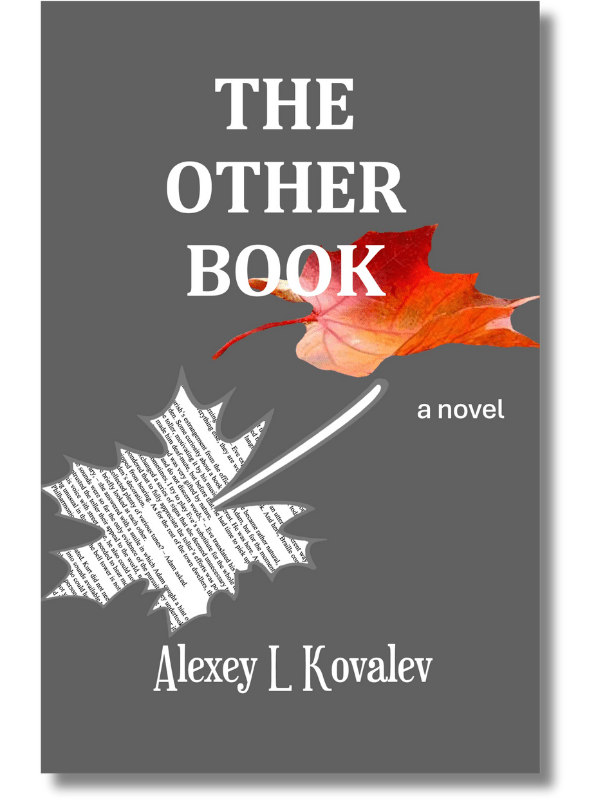The Other Book
by Alexey L. Kovalev
Genre: Fantasy / Experimental
ISBN: 979-8891325500
Print Length: 210 pages
Publisher: Atmosphere Press
Reviewed by Joelene Pynnonen
A convention-breaking novel that explores the intricacies of human experience
During the COVID-19 pandemic, Paul, a young doctor working in an intensive care unit, discovers a piece of writing online. Touting itself as a New World Storyline, it grows and changes as people around the world interact with it.
In this New World book, an author, a musician, and the doctor begin a dialogue about the state of the world. They lament the formulaic nature of stories, bitterly reject the palatable scene that is now music, question the ethics of medicine, and discuss the state of the world.
As this novel progresses, more people arrive to partake in the discussion. Between shifts at the increasingly overrun hospital, Paul realizes that he is becoming a part of this strange new story. As others get caught up in the narrative, it becomes clear that the story is closer to his reality than he might have expected. And that it has the power to change everyone who encounters it.
The Other Book is an experimental work that draws on existing literature to showcase something new. Layers of rich intertextuality are woven through the discussions in this novel. It draws from sources that are both ancient and contemporary, from as far back as Gilgamesh, the Bible, and Norse Mythology to books like Sophie’s Choice.
The perpetual question posed in these pages is, what makes a book? Or, perhaps more specifically, what makes a story? Is a dialogue held by several people on the nature of the world, and of the Arts, considered one? This question permeates through the text, as there’s no clear answer.
While The Other Book is experimental, it builds on existing narrative forms. The novel within the novel is written in a similar way to a script but is more analogous to current online stories told through a series of screenshotted message exchanges. In a modern sense, this could be considered an epistolary. The characters within the pages write to each other, and the interactions become the body of the text. A perpetual, ongoing story that shifts to new characters but seemingly is without end.
The prose in The Other Book can be difficult. This is partially because the descriptive language is stylized, formal, and challenging rather than conversational. The issue this poses is that we need to comprehend the ideas being explored in order for the experiment to land. There’s also a white page problem happening in The Other Book —not much description to ground readers into the novel. There’s the feeling of reaching around in the dark, looking for a marker to orientate yourself. Instead, we find difficult to decipher dialogue happening in a vacuum.
This is a creative philosophical journey that probes at the heart of what makes us human. An ultra-modern take on traditional storytelling conventions, it opens readers to the possibility of seeing an old story with fresh eyes. The Other Book is a read that hosts a wide range of interesting discussions.
Thank you for reading Joelene Pynnonen’s book review of The Other Book by Alexey L. Kovalev! If you liked what you read, please spend some more time with us at the links below.
The post Book Review: The Other Book by Alexey L. Kovalev appeared first on Independent Book Review.
